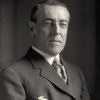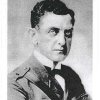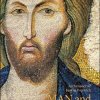To the People of the United States:
On Sunday, 28th of this present month, will occur the fourth anniversary of the day when the gallant people of Serbia, rather than submit to the studied and ignoble exactions of a prearranged foe, were called upon by the war declaration of Austria-Hungry to defend their territory and their homes against an enemy bent on their destruction. Nobly did they respond.
So valiantly and courageously did they oppose the forces of a country ten times greater in population and resources that it was only after they had thrice driven the Austrians back and Germany and Bulgaria had come to the aid of Austria that they were compelled to retreat over the Albania. While their territory has been devastated and their homes despoiled, the spirit of the Serbian people has not been broken. Though overwhelmed by superior forces, their love of freedom remains unabated. Brutal force has left unaffected their firm determination to sacrifice everything for liberty and independence.
It s fitting that the people of the United Slates, dedicated to the self-evident truth that is the right of the people of all nations, small as well as great, to live their own lives and choose their own Government, and remembering that the principles for which Serbia has so nobly fought and suffered are those for which the United States is fighting, should on the occasion of this anniversary manifest in an appropriate manner their war sympathy with this oppressed people who have so heroically resisted the aims of the Germanic nations to master the world. At the same time, we should not forget the kindred people of the Great Slavic race—the Poles, the Czechs and Jugo-Slavs, who, now dominated and oppressed by alien races yearn for independence and national unity.
This can be done in a mariner no more appropriate than in our churches. I, therefore, appeal to the people of the United States of all faiths arid creeds to assemble in their several places of worship on Sunday July 28, for the purpose of giving expression to their sympathy with this subjugated people and their oppressed and dominated kindred in other lands, and to invoke the blessings of Almighty God upon them and upon the cause to which they are pledged
Woodrow Wilson, President
The White House, July, 1918





